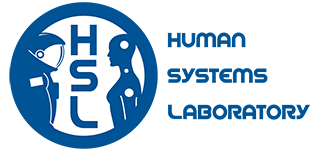Panel Talk Title: Developing Future NASA Human Spaceflight Operations Concepts and Technologies, Today.
Panelists:
1) Matthew J. Miller, Ph.D.
Exploration Research Engineer
JACOBS/JETS | Advanced Exploration Group, NASA Johnson Space Center, Astromaterials Research and Exploration Science
Matthew James Miller is an Exploration Research Engineer at the NASA Johnson Space Center. He received a BS, MS, and PhD in aerospace engineering from the Georgia Institute of Technology in 2012, 2014, 2017 respectively. He has worked previously at the Charles S. Draper Laboratory, the Aerospace Corporation, and ATA Engineering. His research interests are in the areas of human decision making and decision support development in complex work domains such as human spaceflight.
Dr. Miller has extensive experience working with certified extravehicular activity (EVA) flight controllers NASA JSC where he has gained operational understanding of the constraints that shape human EVA using cognitive systems engineering research approaches. He has been an active researcher within NASA field analog simulations since 2012 where he was the crew commander of the Mars Desert Research Station (MDRS) crew 115. Since then, he has supported numerous NASA Extreme Environment Mission Operations (NEEMO) deployments as part of the EVA exploration team (NEEMO 19, 20, 21, 22). In addition, he supported the 2015 Pavilion Lake Research Project (PLRP) field deployment as the EVA Exploration Lead, as well as support the 2016-17 deployments of the NASA Biologic Analog Science Associate with Lava Terrains (BASALT-1,2,3) analog as a member of the EVA exploration team and as an EVA flight controller. Currently, he supports four NASA analog programs: Physiological and Cognitive Exploration Simulations (PACES), Systematic Underwater Biogeochemical Science and Exploration Analog (SUBSEA), Scientific Hybrid Reality Environments (SHyRE), and Scientific Physical and Operational Characterization (SPOC) where he leads operations research and development.
Miller References:
- Miller, M. J., McGuire, K. M., & Feigh, K. M. (2017). Decision Support System Requirements Definition for Human Extravehicular Activity Based on Cognitive Work Analysis. Journal of Cognitive Engineering and Decision Making, 11(2), 136–165. http://doi.org/10.1177/1555343416672112
- Miller, M. J., Coan, D. A., Abercromby, A. F. J., & Feigh, K. M. (2017). Design and Development of Support Systems for Future Human Extravehicular Activity. Presented at the AIAA SciTech. Retrieved from https://doi.org/10.2514/6.2017-1444 Download Link
- Bonus - for those students interested in learning more about the software created from my thesis:
- Miller, M. J., Pittman, C. W., & Feigh, K. M. (2017). Next-Generation Human Extravehicular Spaceflight Operations Support Systems Development. Presented at the 68th International Astronautical Congress, Adelaide, Australia. Download Link
2) Kara H. Beaton, Ph.D.
EVA Research Engineer
Human Physiology, Performance, Protection & Operations Laboratory, NASA JSC
Kara received a BS in Aerospace Engineering from the University of Illinois, SM in Aeronautics and Astronautics from MIT, and PhD in Biomedical Engineering from the Johns Hopkins University School of Medicine. She has extensive experience with operationally driven aerospace and biomedical research with the US Navy, NASA, and various clinical laboratories around the world. She is currently an EVA Research Engineer in the H-3PO (Human Physiology, Performance, Protection & Operations) Laboratory at the NASA Johnson Space Center. Kara’s research interests focus on human physiology and performance in spaceflight analog environments. She is a veteran of 1500+ parabolas conducting neurovestibular research onboard NASA’s reduced gravity aircraft, and has supported multiple NASA analogs, including NEEMO (NASA Extreme Environment Mission Operations) missions 18-22 as an internal investigator and mission support diver, and BASALT (Biologic Analog Science Associated with Lava Terrains), leading the science operations team. She currently splits her time supporting NASA’s NextSTEP program, co-leading the crew-in-the-loop evaluations of candidate habitation elements for Gateway, and supporting the BASALT and SPOC (Scientific Physical and Operational Characterization) terrestrial analogs.
References:
- Beaton, K.H., Chappell, S.P., Abercromby, A., Miller, M.J., Kobs Nawotniak, S., Brady, A.L., Stevens, A., Payler, S., Hughes, S.S., and Lim, D.S.S. (2019). Using science-driven analog research to investigate extravehicular activity science operations concepts and capabilities for human planetary exploration. Astrobiology 19 (3), pp. 1-21.
- Chappell, S.P., Beaton, K.H., Miller, M.J., Graff, T.G., Abercromby, A., Halcon, C., Gernhardt, M.L. (2016). NEEMO 18-20: analog testing for mitigation of communication latency during human space exploration. In: IEEE Aerospace Conference, Big Sky, MT.
